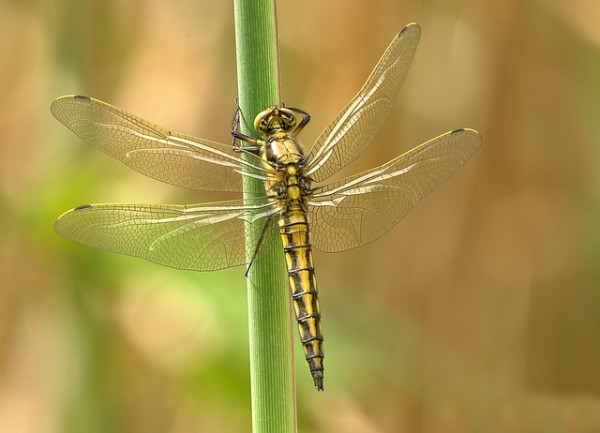It’s a substance found in exoskeletons of crabs and insects — and often in your lungs. Whether you’re aware of it or not, you are constantly breathing in a mixture of microscopic substances in the air that contain chitin, such as dust mites and fungal spores. Because of its sturdiness and foreign nature, chitin in our lungs must be removed. How it is removed and whether it has any deleterious effects remain unclear. However, a recent study suggests that chitin may cause lung diseases and that our bodies rely on a certain enzyme to get rid of it.
Image Source: Dorling Kindersley
Researchers from UCSF have found that an enzyme known as AMCase may be responsible for the breakdown of chitin in the airways of mice and possibly humans. Their previous study had found that inhaled chitin can cause an inflammatory response that ultimately leads to pulmonary fibrosis, a type of lung disease where scarring of lung tissue makes it hard to breathe. With such harmful effects, it would make sense if our bodies were able to break down inhaled chitin. In fact, chitinases are enzymes designed specifically for such a function. In this study, the researchers found that AMCase, a chitinase, was being made by cells in the airways of mice. To test the importance of this enzyme, they knocked out the genes encoding it in mice, which prevented these mice from making their own AMCase. Without AMCase, the airways of these mice experienced a buildup of chitin which resulted in inflammation and lung disease. Interestingly, the researchers were able to rescue, or treat, these mice by reverting the genetic modification or introducing AMCase artificially through their noses.
The study went on to confirm these findings in humans. The researchers examined individuals with inflammatory lung disease as well as healthy controls without lung disease and found that those with pulmonary fibrosis had much more chitin in their airways than healthy individuals did. While the researchers did not notice any difference in AMCase levels, they believe that their findings are still valid despite this discrepancy. Ultimately, more work needs to be done in order to definitively say that chitin causes inflammatory lung disease and that AMCase prevents it by breaking chitin down. If these findings are found to be true, new potential therapeutic applications involving the use of chitinases to reduce lung inflammation may follow.
Feature Image Source: 255817










